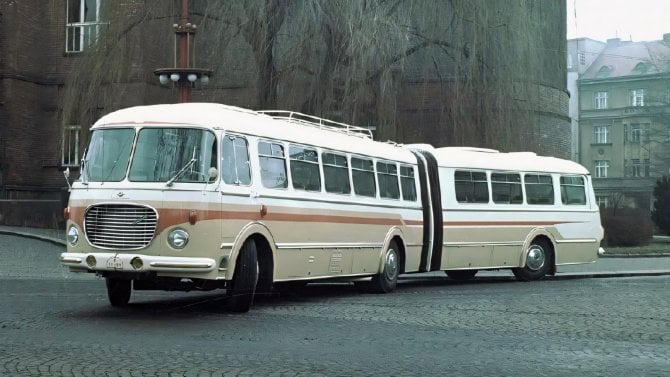...
By Jeff Mason and Marcin Grajewski
BRUSSELS, June 21 (Reuters) - European Union leaders headed for a showdown on Thursday over efforts to overhaul the bloc's creaking institutions, but chances of agreement appeared to be rising after chief critic Poland softened its tone.
British Prime Minister Tony Blair, attending his last EU summit, said prospects for a deal to launch negotiations on a reform treaty were "touch and go". Polish Prime Minister Jaroslaw Kaczynski put the odds at 50-50.
Objections by London and Warsaw could yet scupper German Chancellor Angela Merkel's drive to replace the defunct EU constitution after years of wrangling over the division of power between Brussels and member states, and between big and small nations.
Failure to agree at a summit likely to run into Saturday would be a huge setback for the 27-nation bloc, two years after French and Dutch voters rejected the constitution.
Luxembourg Prime Minister Jean Claude Juncker said there would be no room to enlarge the EU further unless leaders reached a deal to make its institutions run more efficiently.
A breakdown might prompt a smaller group of member states to press ahead with closer integration, leaving others behind, and make richer countries more reluctant to aid poorer newcomers.
Poland wants changes to the EU's voting system which it says favours big countries, especially Germany, at its expense.
Nearly all the other EU countries favour keeping the decision-making formula set out in the constitution draft rejected by French and Dutch voters in 2005.
MORE CONCILIATORY?
Juncker, the EU's elder statesman, suggested a compromise to give countries just short of a blocking minority an emergency brake to postpone a decision and force partners to continue negotiating.
Kaczynski struck a conciliatory tone in remarks to Rzeczpospolita newspaper on Thursday, saying: "We have made some progress although the situation is not yet fully satisfying.
"Nevertheless, I think there is a chance that our demands are understood. If not we will have to draw conclusions," he said.
Hungarian Prime Minister Ferenc Gyurcsany said in Brussels: "There are two things we have to tell our Polish friends -- we need to show solidarity, but solidarity is a two-sided phenomenon."
German Foreign Minister Frank Walter Steinmeier said cautiously optimistic comments out of Poland were balanced by "critical comments coming from other member states" -- an apparent reference to Britain.
London says the new treaty must not make the bloc's Charter of Fundamental Rights, including a broadly defined right to strike, legally binding on itself. It also wants to shrink the powers of a proposed EU foreign minister and change the title.
"We need to have it belt and braces bolted down that it will not change British law," Blair said of the charter in an interview with The Times newspaper. "This is what I need if you want me to agree."
Merkel was to have a telephone conference with Blair and his successor-in-waiting, Gordon Brown, hours before the summit to try to overcome Britain's four key objections.
Blair's spokesman said the prime minister reiterated the four "red lines" at a cabinet meeting in London and all would have to be achieved or he was ready to "walk away from a deal".
New French President Nicolas Sarkozy, keen to help broker a deal at his first EU summit, also highlighted multiple problems.
He said on Wednesday he would put any new treaty to parliamentary ratification and not hold another referendum, despite cries by Eurosceptics that EU leaders are defying the will of the people. A second referendum would kill Europe, he said.
Kaczynski's statement that Poland could accept the voting system it has opposed for months if it received a bigger say in the Union appeared to indicate a willingness to compromise.
The Czech Republic, which had backed Poland on the voting system, said on Wednesday it would not veto a deal on the voting issue, leaving Poland without an ally.
Eighteen EU members have ratified the constitution treaty, But there is now agreement to cut it significantly, to allow France, the Netherlands and Britain to avoid risky referendums.
Some key institutional arrangements are set to be kept, such as creating a president of the European Council of governments elected for 2-1/2 years instead of the current six-month rotating presidency which has grown unwieldy in the enlarged EU. (additional reporting by David Clarke in London, Jon Boyle in Paris, Adam Jasser in Warsaw, Jan Lopatka in Prague and Francois Murphy in Brussels)
Keywords: EU TREATY/




 Na český trh vstoupil další elektromobil, který má ambice nahradit Golf nebo Octavii. EV4 ujede přes 600 km a stojí pod milion
Na český trh vstoupil další elektromobil, který má ambice nahradit Golf nebo Octavii. EV4 ujede přes 600 km a stojí pod milion
 V Evropě se objevil návrh na to, jak od elektromobilistů vybrat peníze, když neplatí daně z paliva. Zdanit se má soukromé nabíjení i ujeté kilometry
V Evropě se objevil návrh na to, jak od elektromobilistů vybrat peníze, když neplatí daně z paliva. Zdanit se má soukromé nabíjení i ujeté kilometry
 Test Citroen C3 Aircross: Na velikosti záleží
Test Citroen C3 Aircross: Na velikosti záleží
 Po stopách prototypů československých užitkových vozidel. Dochovalo se jich jen minimum
Po stopách prototypů československých užitkových vozidel. Dochovalo se jich jen minimum
 Nastavoval intenzitu elektronické cigarety za volantem, dostal pokutu. Podle soudu je e-cigareta mobil
Nastavoval intenzitu elektronické cigarety za volantem, dostal pokutu. Podle soudu je e-cigareta mobil
